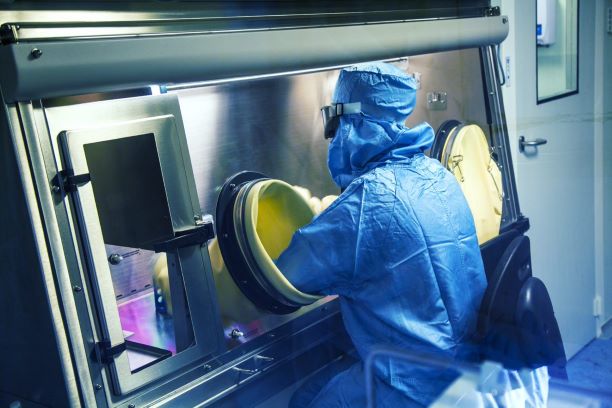CaixaResearch call for Health Research promotes UB research

La Caixa Foundation announced today the thirty projects that were selected in the call CaixaResearch on Health Research 2021. The UB leads one of these projects and takes part in two others. These are excellence projects on biomedicine and research on health presented by research centres and universities from Spain and Portugal, funded with a total of 22.1 million euros to be carried out for three years. With these aids, La Caixa Foundation aims to promote research projects of the centres in Spain and Portugal in collaboration with other international ones, willing to provide results to benefit the health and wellbeing of society.

La Caixa Foundation announced today the thirty projects that were selected in the call CaixaResearch on Health Research 2021. The UB leads one of these projects and takes part in two others. These are excellence projects on biomedicine and research on health presented by research centres and universities from Spain and Portugal, funded with a total of 22.1 million euros to be carried out for three years. With these aids, La Caixa Foundation aims to promote research projects of the centres in Spain and Portugal in collaboration with other international ones, willing to provide results to benefit the health and wellbeing of society.
Neuronal reprogramming to stop Huntingtonʼs disease
Josep M. Canals, lecturer at the Department of Biomedicine of the Faculty of Medicine and Health Sciences, director of Creatio and member of the Institute of Neurosciences of the UB (UBNeuro) and IDIBAPS, is leading the project “Neuronal reprogramming to stop Huntingtonʼs disease”, which received 994,890 euros in funding in this call. The UB team counts on the researcher Petia Radeva, professor at the Faculty of Mathematics and Computer Science, and the experts Daniel del Toro and Daniel Tornero, from UBNeuro and IDIBAPS, both members of the Department of Biomedicine at the Faculty of Medicine and Health Sciences.
Huntingtonʼs disease is the most common inherited neurodegenerative disease. It does not express until one is thirty or forty, when the deterioration of certain neurons causes a motor dysfunction that causes uncontrolled movements in patients, in a dancing manner, which are progressively accentuated. There is little knowledge on the neuronal alterations that appear during the brain development, in particular, in the region of the striatum, and how they are later translated in the pathology duding adulthood.
The project analyses the role of the neuronal progenitor cells that during the development, will differentiated into striatum cells. The goal is to find the impact they have on the disease, and using in vivo reprogramming of the damaged neuronal circuits, stop or slow its onset.
The Project counts on the participation of the Institute of Molecular Biotechnology of the Austrian Academy of Sciences (IMBA), the Vienna BioCenter (Austria), the Lund Stem Cell Centre (Sweden), Cardiff University (United Kingdom), and the European Network of Huntingtonʼs Disease.
Other projects with UB participation
Professor Antonio Zorzano, from the Faculty of Biology and the Institute of Biomedical Research (IRB Barcelona), leads the project “Metabolism, key to understand non-alcoholic fatty liver”, funded with 997,014 euros to be carried out at IRB Barcelona together with the Health Research Institute Pere Virgili Foundation and the UB. The project, which counts on the participation of the research Maribel Hernández, from the Faculty of Biology, studies some markers of the metabolism that will enable the development of new tools for diagnosis and therapeutic targets for one of the most severe forms of the fatty liver, non-alcoholic fatty liver disease.
In the area of infectious diseases, the researcher Aurora Hernández-Machado, professor at the Faculty of Physics, takes part in the project “Hidding places for malaria”, led by the researcher Hernando A. del Portillo, expert from the Barcelona Global Health Institute (ISGlobal). Funded with 996,930.57 euros, the project carried out a miniature mock-up of the bone marrow and the spleen (with the chip organ technology) to study the hidden places of the parasite in the body, elucidate the role of exosomes and remove the malaria disease. Apart from the UB, the study counts on the collaboration of the Health Research and Innovation Institute (Portugal) and the University of Mahidol (Thailand).
